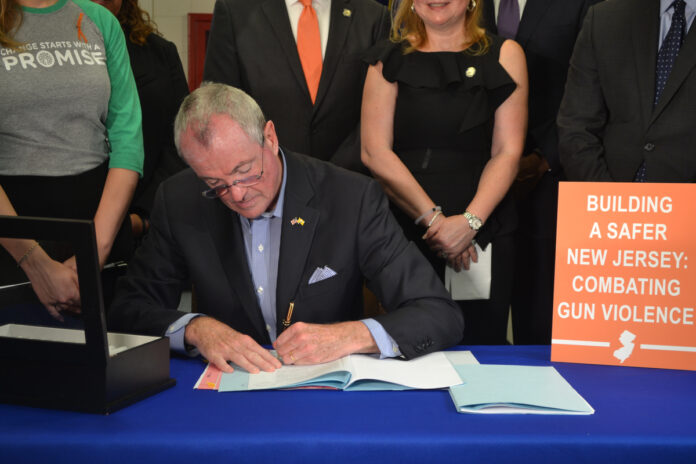TRENTON, N.J. – New Jersey Governor Phil Murphy this week championed legal cannabis sales in an interview on a local morning radio show. A longtime proponent of legalization, Murphy said it is “an incredibly smart thing to do” and could help generate much needed revenue for the state’s struggling economy.
When the discussion turned toward using cannabis tax revenue to help ease budget woes, Murphy agreed. “Listen, as you probably know, I’ve been on that from day one,” he said.
Like many other leaders across the nation, Murphy views the potential revenue from legal cannabis as a way to close some of the budget gaps created by COVID-19.
Murphy made cannabis legalization a cornerstone of his successful 2017 campaign for New Jersey’s governorship. While he has promoted the economic benefits of legalization, Murphy also has focused on legalization to help address another prevalent political issue, criminal justice reform.
“Maintaining a status quo that sees roughly 600 individuals, disproportionately people of color, arrested in New Jersey every week for low-level drug offenses is wholly unacceptable,” Murphy said in a statement last year.
Unlike the federal government, states cannot operate at a deficit. This means state governments cannot simply spend their way out of the coronavirus pandemic through stimulus spending. Local governments may have to get creative to ease the financial crunch they currently face.
In some California cities, where officials initially declined to legalize cannabis sales despite state residents approving recreational use, the conversation over legal sales may be changing. So far, approximately 70 percent of state municipalities have not approved adult-use cannabis sales in their jurisdictions. Now, faced with some of the worst economic prospects since the Great Depression, these cities may be warming up to the idea of recreational cannabis sales.
“I think at the end of the day you’ll still have those ‘not in my backyard’ arguments,” Tiffany Devitt, chief information officer for CannaCraft said. “But, if a person can’t find a job, or their kids can’t find work, or their jurisdiction can’t raise enough funds to cover basic social services, then people adjust.”
City leaders in San Bruno, California, who are facing an $8.2 million deficit, believe a legal cannabis dispensary would net the city $300,000.
“It’s not gonna solve our problems, but it’s going to keep $300,000 that we desperately need to hire whomever it is to make our city better,” Council Member Marty Medina said at a recent meeting.
The building momentum for cannabis legalization is not confined only to local and state leaders.
United States Senator Ed Markey (D-Mass.) recently spoke about what is needed to transition U.S. policy into the future. While discussing climate change and cannabis on The Young Jurks podcast on July 11, Markey said, “we need to move on these policies and have our own 1933, our own New Deal.”
Markey, who is confident Democrats will take control of the U.S. Senate in the upcoming election, believes the public debate on several generational issues is over.
“We’re now through the political education on climate and marijuana, we’re into the activation stage, and in November, implementation,” he said.









